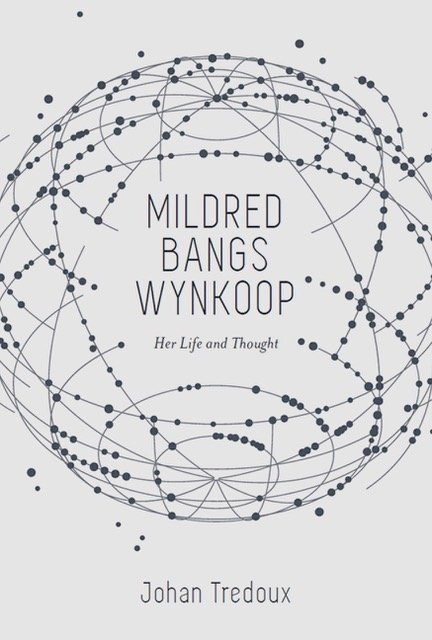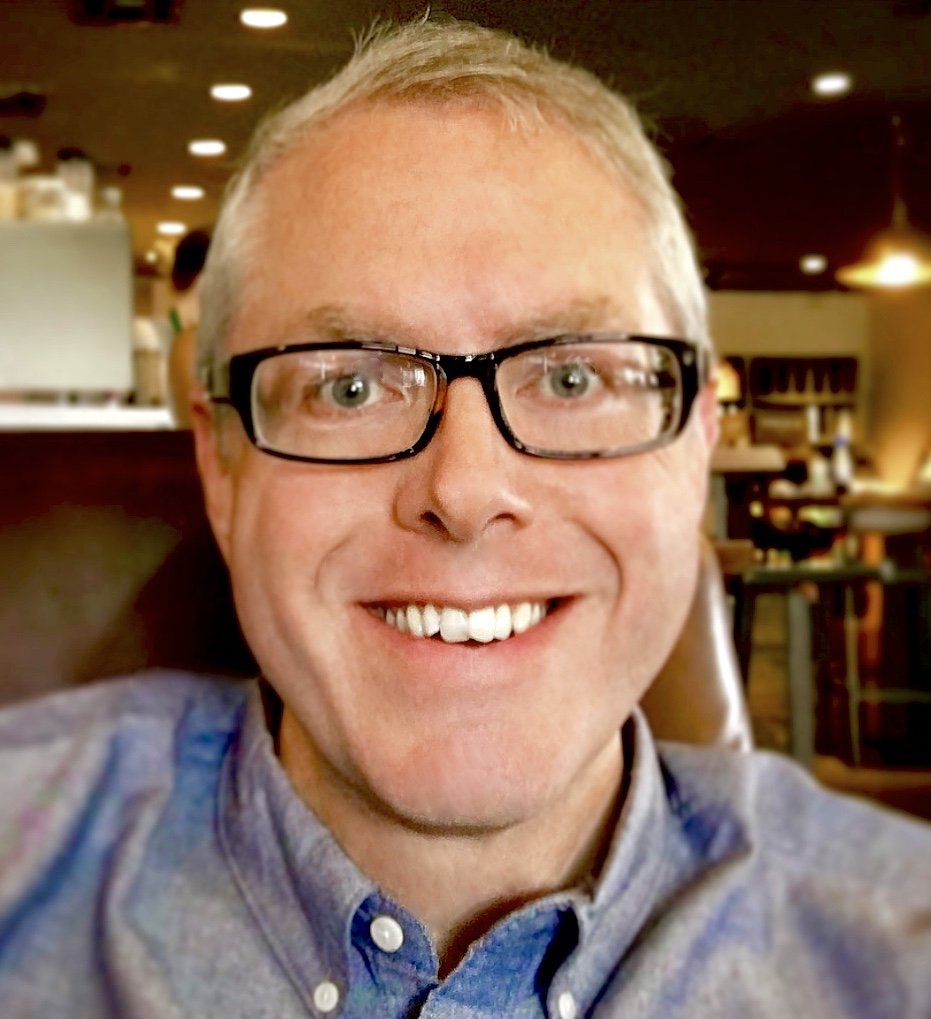What was the primary argument of your doctoral thesis?
My research broke new ground as I attempted to bring a comprehensive understanding of Wynkoop’s passion for a more biblical way of thinking about the Christian life and particularly Christian holiness. My thesis made the argument that Wynkoop’s version of Wesleyan holiness theology was an authentic interpretation of John Wesley’s doctrine of sanctification.
Going through boxes and boxes of her unpublished material, (Wynkoop Collection at the Nazarene Archives) especially her primary work, A Theology of Depth (written in 1958) and her 180-page master’s degree in theological anthropology, helped me to make significant discoveries of what shaped Wynkoop’s theology at a pre-suppositional level.
As I examined the sources and development of Wynkoop's theology of sanctification, I was able to conclude that Wynkoop was significantly influenced by John Wesley's dynamic, Christological, relational, teleological, and socially oriented understanding of sanctification.
What led you to study this subject?
My father introduced me to Wynkoop in 1980, during the Nazarene General Assembly, which was held in Kansas City that year. Meeting Mildred & Ralph at the early age of 21 was a delight. I recall a gracious and humble lady who was very present at the moment. Had I known at that time that I would spend six years researching her life and writings (almost 30 years later), I would have asked her lots of questions. Having grown up as Afrikaans-speaking citizens in apartheid-era South Africa, a theology of love was not something that would have been a reality in our lives.
However, the choice to walk away from prejudice opened a whole new world to my father, including the opportunity to study under Wynkoop at NTS in the mid-1970s. Under Wynkoop, my father's theological world was opened to the thoughts of John Wesley and Wynkoop's relational and Christological understanding of Christian sanctification. Seeing the impact that Wynkoop made on my family, I became very curious about her life and theology.
My curiosity eventually led me to make her lifetime work the focus of my doctoral research at the University of Manchester (UK) under the supervision of Dr. Tom Noble. As mentioned before, part of this research involved spending one day a week for a whole year going through boxes and boxes of her lifetime work that was never published.
How did your thesis contribute to the field?
My work helped to clarify the life circumstances, sources, and methodologies used by Wynkoop to put forth her existential understanding of Christian holiness as reflected in her main work A Theology of Love. I was able to set Wynkoop in her context, beginning with her family’s involvement with Dr. Phineas Bresee and her studies under Dr. H. Orton Wiley in the early days of the Church of the Nazarene. I also demonstrated in this thesis how John Wesley served as a mentor to her (not a guru), as she attempted to bring Wesley's theology into the 20th century.
Her relational reading of John Wesley and the American holiness movement’s theology of Christian holiness raised significant theological debate in the last decades of the twentieth century. Even so, amid fundamentalism’s fear-based voices, I was able to show that Wynkoop taught the Wesleyan-Holiness tradition afresh the importance of biblically based, theological thinking.
As a female theologian, the work of Mildred Bangs Wynkoop remains a significant signpost for those in the Wesleyan-Holiness tradition, especially for the generations to follow. Given the continued threat of Gnosticism, Wynkoop’s theological anthropology, and her Eastern view of image and likeness require serious ongoing consideration.
If seeking to publish your thesis, what has the process of searching for a publisher looked like?
I was fortunate in that the Foundry Publishing Co., expressed interest to publish my doctoral thesis. I already wrote my thesis with a potential publication in mind, so it was an easy transition for the Foundry to adapt my thesis to a less scholarly audience. However, it still required much editing and revision. I was also able to add historically significant photos spanning Wynkoop's life. The Foundry Publishing Co. team who worked with me made it an easy process. My book was launched with much fanfare at the 2017 General Assembly in Indianapolis 😊.
What does your life look like post-graduation? What is your current vocation and how does your doctoral work inform it?
The primary work of Wynkoop was to show that her emphasis on Christlike love must be lived out in an on-the-ground “in shoe leather” theology. Little did I know that her belief would be put to the test for me in a very significant way. The last 5 years brought a significant change for me as I left the pastorate to become a board-certified clinical chaplain (BCC) in a Level 1 Trauma Center, under the tutelage of the Association of Professional Chaplains (APC).
Wynkoop framed her theology in more therapeutic terms rather than judicial. This shift had a direct bearing on my present work as a hospice chaplain. My "witness" has expanded to the rich idea of "WITHness," as I journey with patients and their families facing the end of life. Wynkoop's emphasis on "likeness," as distinct from "image" has brought a renewed focus to the stages of moral cognitive development and the potential for growth embedded in each person. This has given me tools to assess the theological worldview of my patients so that I can better care for them.
What does it mean to you to be a scholar in the Wesleyan tradition?
The Wesleyan-Holiness tradition affords me the privilege to be a teacher of a theology that is saturated with the optimism of grace. A theology that is easily adaptable to any culture, because of its dynamic, Christological, relational, teleological, and socially oriented understanding of sanctification. The Wesleyan tradition's offer of grace and love is extended to everyone, regardless of race, gender, nationality, or sexual orientation. This theological posture allows me to be a proponent of the Wesleyan tradition without compromising my emotional and spiritual integrity.
How do you see your scholarly work as part of your ministry?
My scholarly work allowed me to revisit the presuppositions of my faith. It helped me to move away from static, literal, apocalyptic, and fear-based assumptions, to more relational, historical, and therapeutic assumptions. These shifts in the theological undercurrents of my theological worldview made it possible to cross-fertilize into other disciplines, without compromising the integrity of my faith. This expanded worldview is indispensable in my work as a hospice chaplain, especially as I encounter Hindu, Muslim, Jewish, and Buddhist patients.
What made NTC and Manchester ideal places to undertake your doctoral studies?
Having tea in the lounge with other fellow Ph.D. students, walking down to the Didsbury restaurants, and getting feedback from faculty and fellow students on the papers that were presented, speaks of a journey that was filled with encouraging voices. The Manchester Wesleyan Research Centre library and the John Rylands Library have given me access to resources not otherwise available. The cost is also significantly lower than doing a Ph.D. in the USA, especially when you factor in the inexpensive accommodation arrangements at NTC.
What are some projects in progress? Where can we find your work these days?
Other than my main work: Mildred Bangs Wynkoop, Her Life, and Thought, I have contributed chapters in A Plain Account of Christian Faithfulness edited by Rob Fringer, and Love Does Not Control edited by Thomas Oord. The last edition (Vol 22, #2) of the Didache: Faithful Teaching Journal edited by Dean G. Blevins, featured an article I wrote on the “Key Tenets of Wynkoop’s Theology.”
What advice do you have for recent doctoral graduates who are searching for jobs, whether in academia, the church, or elsewhere?
It would be good for doctoral graduates to have a long view on the fruits of their labor percolating to the top. In this present climate of anti-intellectualism, in many cases, it will require graduates to carry their doctorates in their back pockets if they choose to enter pastoral ministry. It will also be advisable to look for communities that are open to pastoral theologians. In the academic world, I would advise that graduates remain open to enter at the adjunct level supported with bi-vocational income. Networking and writing to reflect theologically on current events will keep the graduate's feet on the ground.



